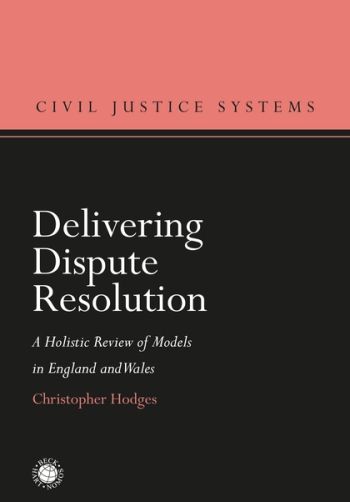
This book reviews the techniques, mechanisms and architectures of the way disputes are processed in England and Wales. Adopting a comparative approach, it evaluates the current state of the main different types of dispute resolution systems, including business, consumer, personal injury, family, employment and claims against the state. It provides a holistic overview of the whole system and suggests both systemic and detailed reforms.
Examining dispute resolution pathways from users’ perspectives, the book highlights options such as ombudsmen, regulators and courts as well as mediation and other ADR approaches. It maps numerous various sectoral developments to see if learning might be spread to other sectors.
Several recurrent themes arise, including the diversification in the use of techniques; adoption of digital, online and artificial technology; cost and funding constraints; the emergence of new intermediaries; and identifying effective ways for achieving behavioural change.
This timely study analyses the shift from adversarial legalism to softer means of resolving social problems, and points to a major opportunity to devise an imaginative and holistic strategic vision for the nation’s legal system.